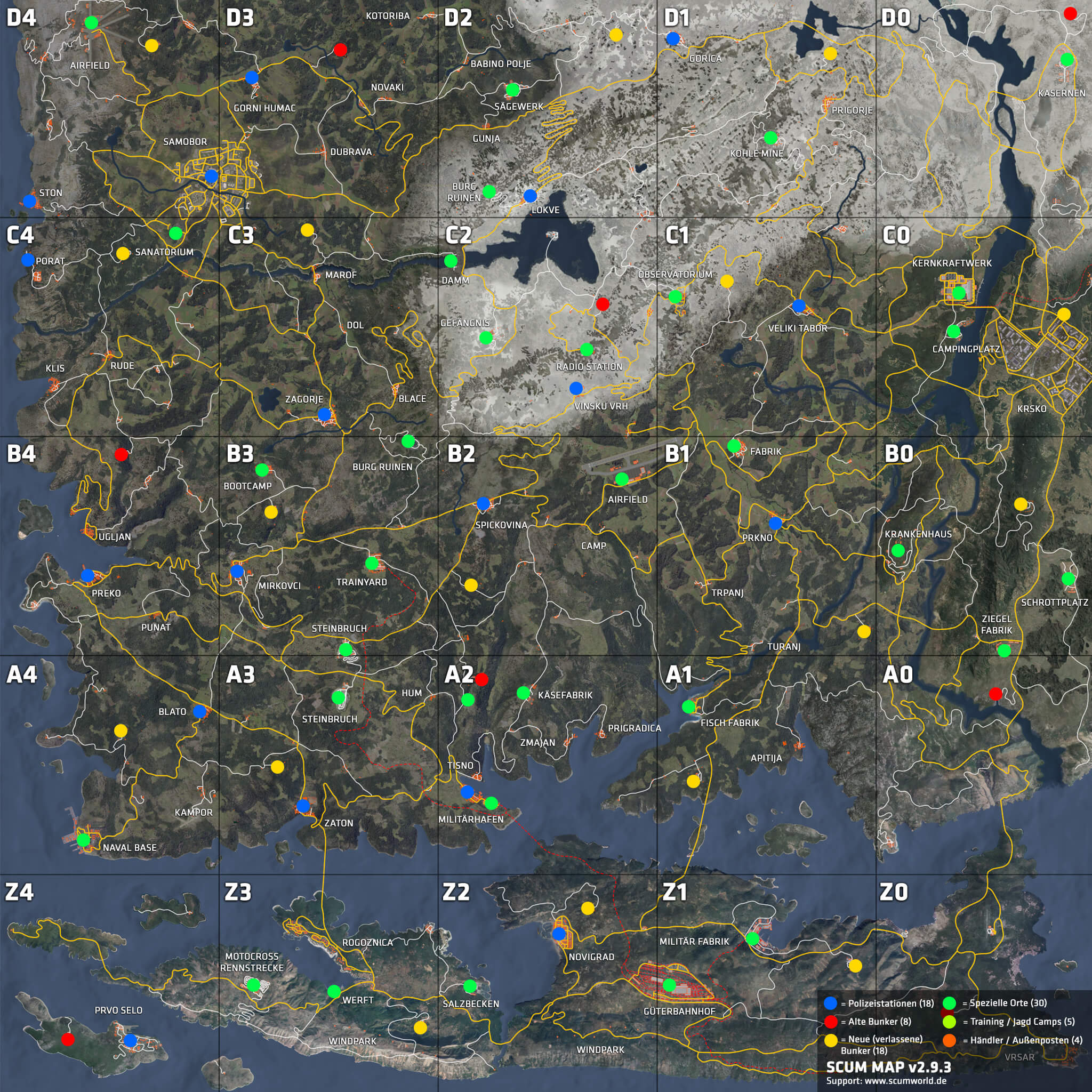The Scum Map 2021: Uncovering the Landscape of Online Abuse
Related Articles: The Scum Map 2021: Uncovering the Landscape of Online Abuse
Introduction
With enthusiasm, let’s navigate through the intriguing topic related to The Scum Map 2021: Uncovering the Landscape of Online Abuse. Let’s weave interesting information and offer fresh perspectives to the readers.
Table of Content
The Scum Map 2021: Uncovering the Landscape of Online Abuse
![]()
The internet, a vast and interconnected network, is a platform for countless interactions, both positive and negative. One particularly concerning aspect of this digital landscape is the prevalence of online abuse. While the internet offers anonymity and a sense of detachment, it can also be a breeding ground for harmful behavior, fostering environments where individuals feel empowered to engage in harassment, bullying, and other forms of abuse.
The Scum Map 2021, a collaborative effort by a group of researchers and activists, emerged as a critical tool to shed light on this often-hidden issue. This project, while controversial, aimed to raise awareness about the extent of online abuse and highlight the systemic problems that contribute to its persistence. It served as a platform for victims to share their experiences and for the public to engage in a broader discussion about the need for more effective measures to combat online harassment.
Understanding the Scum Map
The Scum Map 2021 was not a physical map in the traditional sense. Instead, it was a crowdsourced database that collected and displayed information about individuals accused of online abuse. Users could submit entries, providing details about the alleged perpetrator, the nature of the abuse, and any supporting evidence. The project’s organizers emphasized that the map was not intended to be a definitive list of abusers, nor was it a court of law. It served as a platform for sharing information and facilitating open dialogue about online abuse.
The Controversial Nature of the Project
The Scum Map 2021 generated considerable controversy. Critics argued that the project was inherently flawed, potentially leading to false accusations and the public shaming of individuals without due process. Concerns were raised about the lack of verification procedures, the potential for abuse of the platform for personal vendettas, and the potential for reputational damage to individuals falsely accused.
Proponents of the Scum Map, however, countered that it served a vital purpose by giving voice to victims and highlighting the systemic issues that enabled online abuse. They argued that the project sparked important conversations about online safety, accountability, and the need for more robust mechanisms to address online harassment.
The Legacy of the Scum Map
Despite its short lifespan, the Scum Map 2021 left an enduring legacy. It ignited a broader discussion about the challenges of online abuse, the need for better platforms for reporting and addressing such behavior, and the importance of creating safer online spaces for all. The project also served as a catalyst for further research and initiatives aimed at combating online harassment.
FAQs about the Scum Map 2021:
- What was the purpose of the Scum Map 2021? The Scum Map 2021 was a crowdsourced database intended to raise awareness about online abuse and provide a platform for victims to share their experiences.
- Was the Scum Map 2021 accurate? The Scum Map 2021 was not a verified database and relied on user-submitted information. As such, the accuracy of the information contained within it could not be guaranteed.
- What were the ethical concerns surrounding the Scum Map 2021? The project raised concerns about the potential for false accusations, reputational damage, and the lack of due process for individuals listed on the map.
- What impact did the Scum Map 2021 have? The Scum Map 2021 sparked widespread discussion about online abuse and the need for better measures to combat it. It also contributed to increased awareness of the issue and the development of new resources for victims.
Tips for Preventing and Addressing Online Abuse:
- Be mindful of your online presence: Consider the information you share online and how it might be used by others.
- Report abuse: If you experience online abuse, report it to the platform where it occurred and consider reporting it to law enforcement if necessary.
- Support victims: If you witness online abuse, offer support to the victim and encourage them to report it.
- Promote a culture of respect: Encourage respectful online behavior and speak out against harassment and abuse.
- Be aware of the signs of online abuse: Learn to recognize the signs of online harassment and know how to respond.
Conclusion
The Scum Map 2021, while controversial, served as a powerful reminder of the prevalence and impact of online abuse. While the project itself has since been discontinued, the conversations it sparked continue to shape discussions about online safety and accountability. The need for robust mechanisms to address online harassment, protect victims, and create safer online spaces remains a pressing issue.
Moving forward, it is crucial to engage in constructive dialogue, develop effective solutions, and work towards a more inclusive and respectful online environment for all.
![]()


![[FR] LifeFrance RolePlay / X2 / Discord / Zone PVP - Serveur Scum](https://top-serveurs.net/upload/5b9eaf9ad19ab-maps%20scum.png)



Closure
Thus, we hope this article has provided valuable insights into The Scum Map 2021: Uncovering the Landscape of Online Abuse. We hope you find this article informative and beneficial. See you in our next article!
